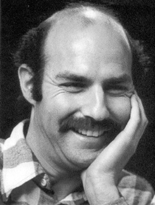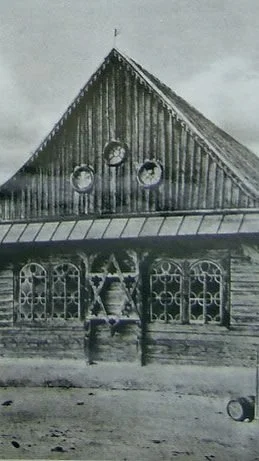David Nadel
(1946 - 1996)
“Only in Berkeley would someone dream up a utopian nightclub”
The history of Ashkenaz is deeply rooted in tradition, beginning with David's first love, East European folk dancing, then designing the building to replicate the Wooden Synagogues, as homage to those that were destroyed during the WWII, and naming the dance hall Ashkenaz, an acknowledgement of respect to his ancestral Ashkenazi Tribe.
Those who knew him would describe him as a passionate, generous man whose life was driven by, more than anything else, the pursuit of justice.
"He was a tzaddik [righteous one]," said Laurie Chastain, a former Ashkenaz staff member who had known Nadel since 1974. "He had a strong temper, and he could holler like nobody's business. But the thing is, he was fair. He weighed issues in an extremely fair way."
Friends attribute that sensibility to Nadel's Jewish heritage.
“Idealistic people get a lot of noise and heat from others. [David] was a person of the highest idealism and integrity. He was someone who insisted on knowing the truth and telling the truth.”
Ethics was his main connection with Judaism," said longtime friend Richard Kaplan. "Money was never the bottom line with him. It was people."
Raised in an assimilated Jewish home in Los Angeles, Nadel saw the movie "Fiddler on the Roof" a year before opening Ashkenaz. The film helped shape his ideas for the San Pablo Avenue club, which over the years has showcased a diversity of cultures and served as a popular meeting place for progressive groups.
"I was so taken with the ramshackle homes of the Ashkenazi Jews [in the movie] and with wondering, `Who are these people?' that I had to get on a plane down to Los Angeles to ask my Grandma Glassman all the questions a grandson should ask," Nadel told the Bulletin in 1992.
Grandma Glassman had answers — on everything from life in Brest-Litovsk on the Polish-Russian border to the history of Nadel's grandfather, who organized against the czar.
The discussion helped Nadel decide to name his club Ashkenaz and gradually to remodel the exterior and interior of the building after the old synagogues of Eastern Europe. The bar there, for example, is based on the gable of an old synagogue; archways are modeled after chuppot, Jewish wedding canopies.
"The whole thing of folk dancing is to preserve old stuff," Nadel told the Bulletin. "I'm into that preservation thing. The more you do it, the more it stays among the people."
In 1993, the Berkeley City Council designated Ashkenaz a landmark. The Berkeley Landmarks Preservation Commission, which initiated the action, cited the vast number of cultures celebrated at the club and compiled a list of more than 150 community groups that have held fund-raisers there.
Among those are homeless activist organizations and such Mideast peace groups as the International Jewish Peace Union. Nadel was an outspoken advocate of a two-state solution and a critic of what he several years ago called Israel's "vicious and fascist" policies toward Palestinians.




